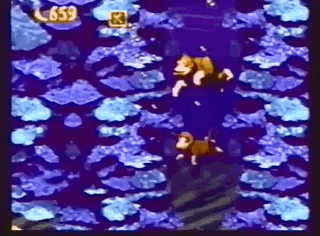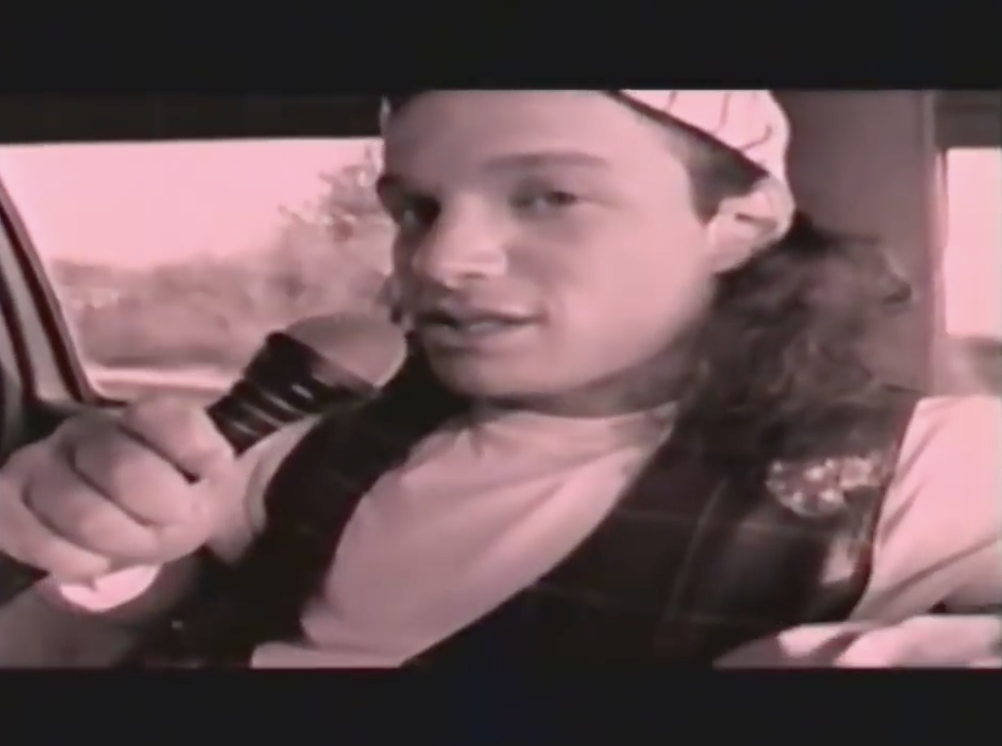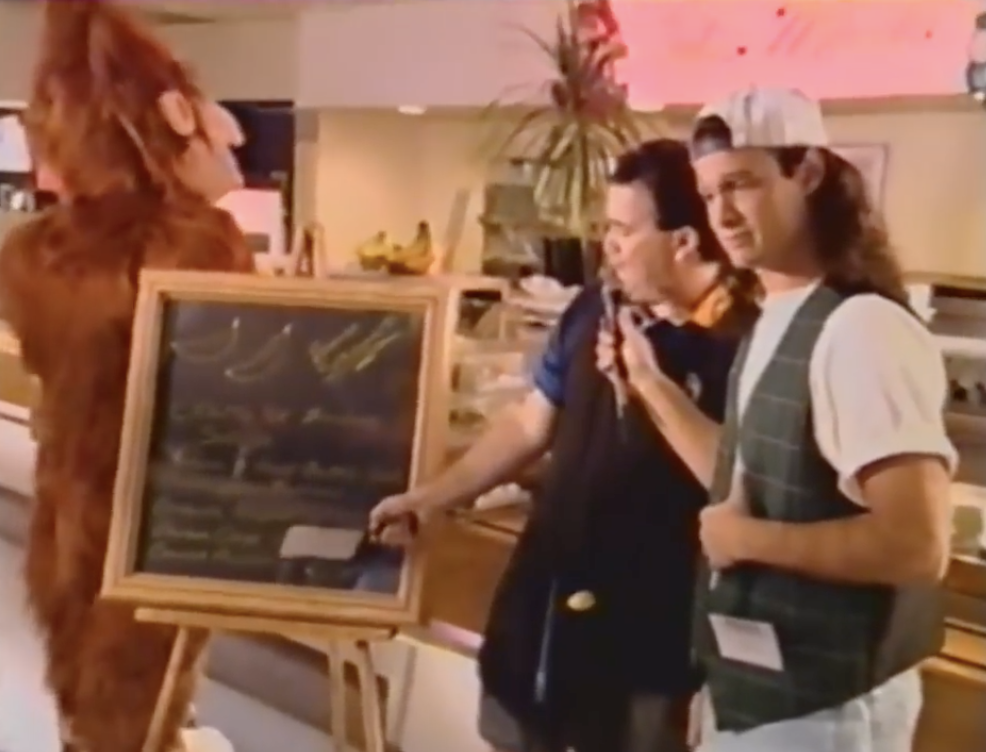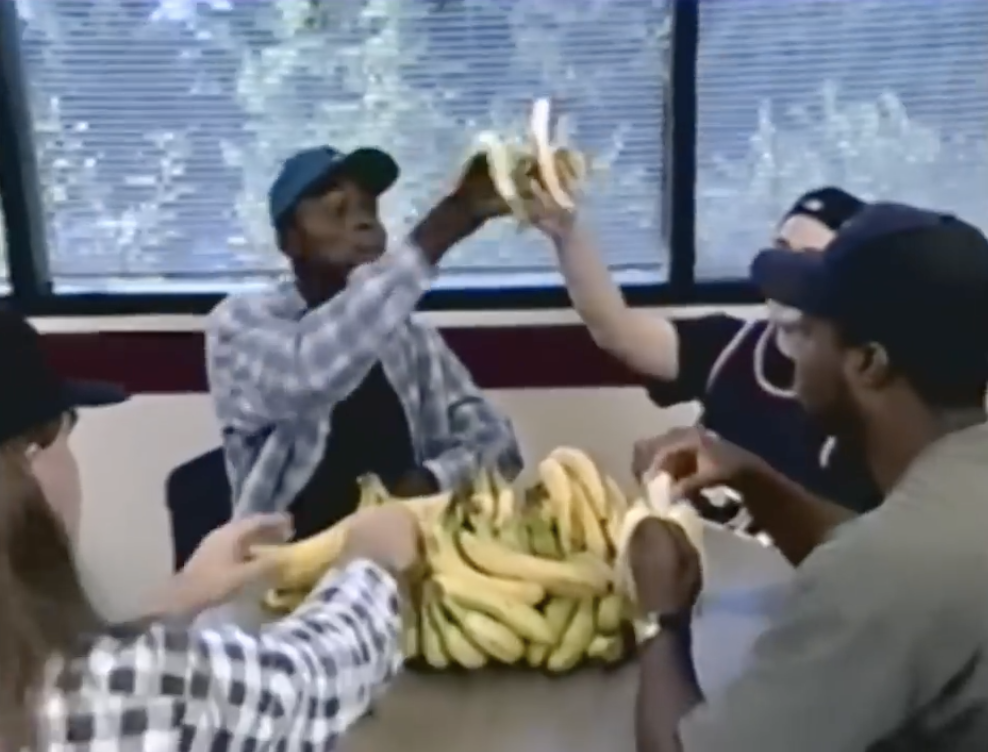If you were a Nintendo Power subscriber in 1994 you might have come home from school to find a VHS sitting in your mailbox. Donkey Kong Country Exposed was a 15-ish minute promotional video about the making of the upcoming (revolutionary) Donkey Kong Country title for the Super Nintendo, and it’s everything that was wrong about Nintendo’s brand positioning in the 1990s all in one short film.
Here’s the thing about Nintendo: Nintendo isn’t “cool”. Nintendo’s fun, and that’s what makes them cool. It took about a decade of trying to out-cool SEGA, Turbografx, and later Sony and Microsoft, for them to realize that and it’s both delightful and painful to see the cringeworthy missteps of that journey. Like Donkey Kong Country Exposed, in which a Rad Dude is tasked with travelling to Nintendo’s U.S. headquarters and interviewing the team behind the new game.
In the span of fifteen minutes the Rad Dude meets the development manager, the product development manager, the story writer, the music director, game testers, and a bunch of developers. Each give their spiel about the things that make the new title great and it’s all pretty stock superlative stuff, but woven throughout is this layer of ‘edgy’ that simultaneously contextualizes the game’s breakthroughs while it also sort of dismisses them. Donkey Kong is not an edgy franchise, and there’s really no reason for it to want to be. 
There’s also a running joke about how all of the dev team eats bananas. Get it?
Here’s Rad Dude during the music director’s earnest rundown of their CD-release effort. WHILE HE IS TALKING. Even the music director gets shook!
The thing is, I get why they did this. Like I mentioned before, the competition was headed in this direction and this, more or less, was how games were marketed in this era. With other Nintendo franchises like, say, Metroid or Castlevania this might have been easier to digest but it’s really flagrantly counterproductive with something like Donkey Kong, a franchise that’s meant to appeal to literally anyone. I’m glad Nintendo got the confidence to believe in the fun of their IP later on in its history, but I’m also thankful we’ve got this snapshot of a moment in time where they were still figuring this out.
-ds






